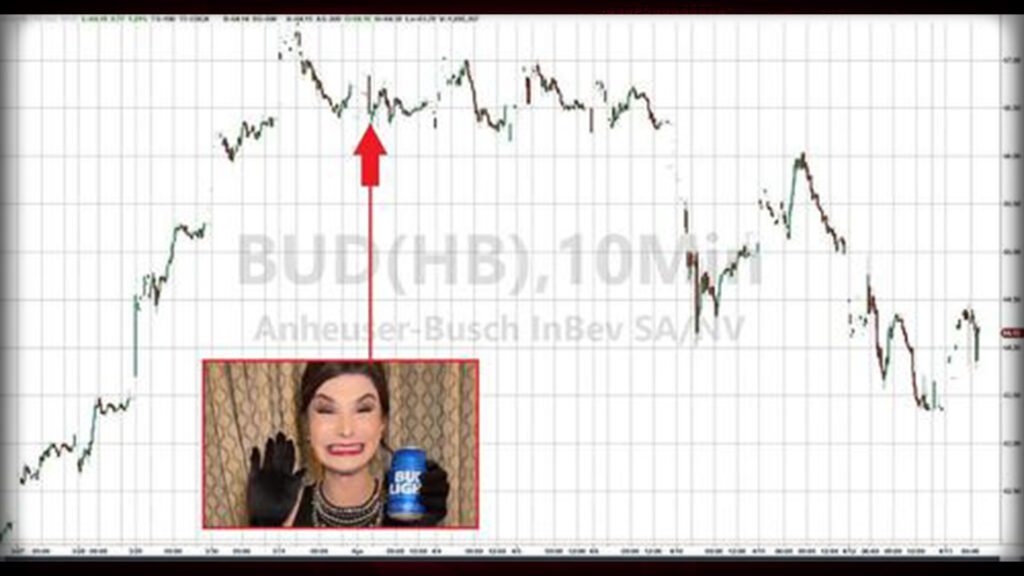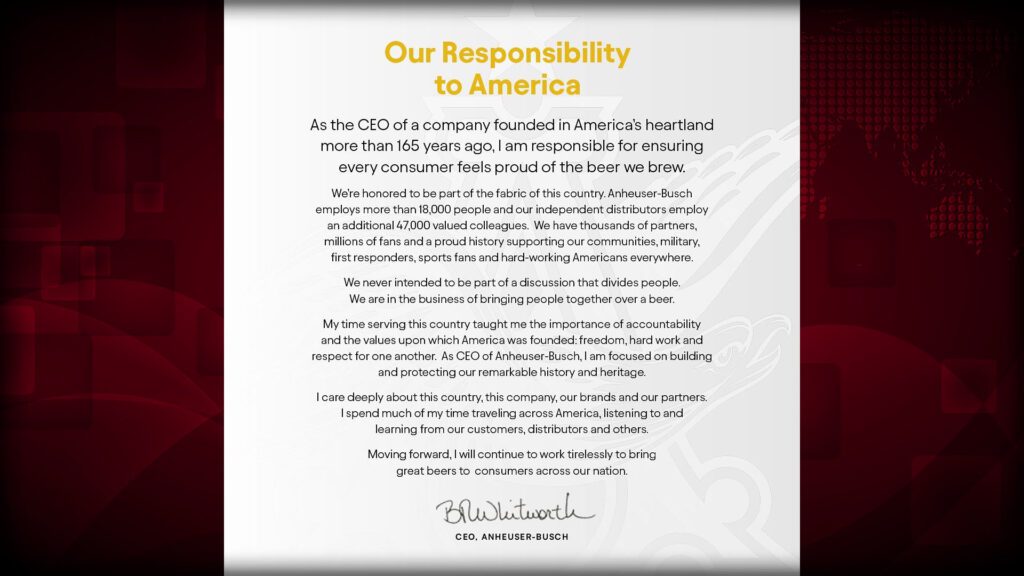Anheuser-Busch’s latest advertising move backfired and they are desperate to win back their core customers. What went so horribly wrong? It all started with a risky decision to cater to a specific audience: the Gender Lobby. With the help of a flamboyant influencer, Bud Light’s campaign was meant to be a bold statement of support, but it ended up costing the company big time. The backlash from their blue-collar core audience was swift and merciless. Now, even after a major effort to clean up their image, doubts remain among skeptical consumers. We have the latest update on the scandal that’s got everyone talking!


Anheuser-Busch InBev owners of beer brands Budweiser, Bud Light, Michelob, and Natural Light, attempted to cater to the Gender Lobby demographic with a controversial influencer with their Bud Light advertisement campaign.


The ad raised eyebrows among blue-collar core audiences, leading to a devastating backlash when they voiced their displeasure with their wallets.


In turn, the company was forced to desperately win back its core customers after significant damage caused by a consumer-led boycott, causing a loss of $6 billion in market value.


This episode showcases the influence wielded by the Gender Lobby, which has infiltrated the corporate world and forced their ideology upon their target audience.


Anheuser-Busch’s production of an ad that failed to resonate with its target market was a misguided attempt to cater to a controversial agenda, which invariably led to the loss of millions of customers. Brand loyalty is key to the beer industry, and Anheuser-Busch’s decision to cater to the Gender Lobby with an advertisement featuring a transgender influencer led to significant doubts among loyal drinkers about their brand.




Former CIA agent now Anheuser-Busch CEO, Brendan Whitworth, in response to the backlash, released a statement attempting to ignore the awkward situation that his company is in. The statement notably tried to bring together people with beer, followed by emphasizing that their intention was never to create any division among people.


Perplexingly, Whitworth stayed quiet about the ad itself, avoiding addressing the root cause of the issue. By omitting the ad and instead promoting himself as the unifying figure, Whitworth demonstrated his lack of commitment to the brand and the company’s target market.


Some analysts and investors have stated that the damage to Anheuser-Busch’s brand likely won’t sink the company, but the impact on the Bud Light brand cannot be ignored. With its target audience being blue-collar workers and younger adults, the Brand’s decision to use a controversial influencer led to doubt among its loyal drinkers about whether they want to continue representing Bud Light. This is concerning as brand loyalty is paramount to beer companies where competition is fierce.


An Anheuser-Busch spokesperson might argue that the decision to include the influencer in the campaign is part of the company’s wider diversity and inclusion initiative. By including a member of that community, they attempted to showcase their sensitivity to diverse people’s concerns. However, if this was their goal, it was poorly executed as it led to a loss of customers among their core consumer base.


While InBev investors might not suffer much, the distributors of AB products and others who do business with the company surely will. Anheuser-Busch is owned by InBev, a multinational conglomerate worth tens of billions of dollars, and the damage caused could affect the business.


Additionally, highlighting the effects of injecting political agendas on other American companies that have abandoned fiduciary duty for politics, the Gender Lobby’s attempt to push their agenda has left a mark on various industries, including the beer industry.
In the aftermath of Anheuser-Busch’s failed Bud Light ad campaign, it has become clear that companies need to steer clear of politics to maintain the loyalty of their core audiences. The backlash from the brand’s supporters only underscores the importance of staying true to your target market and avoiding virtue signaling that can ultimately compromise your brand’s identity. It is alarming to see the Gender Lobby exerting influence on corporations, but it is not too late for businesses to wise up and stay focused on what really matters: creating products that resonate with consumers. We cannot afford to let politics destroy the integrity of our beloved brands. Let this be a lesson to all companies that cave to external pressures without considering the consequences.
Let’s continue this conversation, in the comments below.



